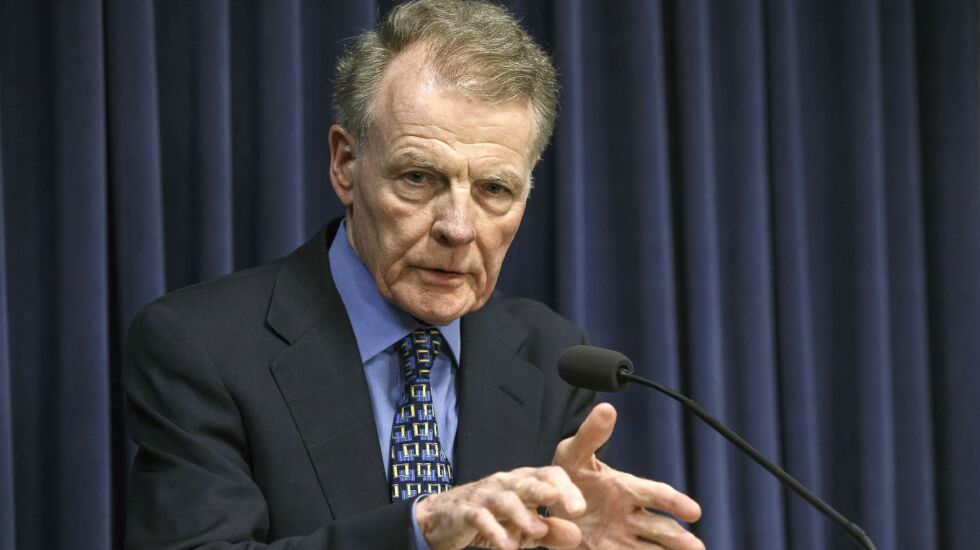
The sentencings of four people convicted of a lengthy conspiracy to bribe then-Illinois House Speaker Michael Madigan for ComEd will not go forward as planned next month, but a judge declined Monday to put all proceedings on hold as defense attorneys hoped.
Meanwhile, a defense attorney for Madigan’s co-defendant said he will be making a similar request to stay proceedings in Madigan’s case, which is set for trial in less than four months.
The developments come in the wake of the Supreme Court’s decision to take up a corruption case out of Northwest Indiana, in which questions revolve around a law at play in the ComEd and Madigan cases.
Defense attorneys say the Supreme Court’s decision in the Indiana case could prove “fatal” to the verdict last May against the ComEd bribery defendants: Madigan confidant Michael McClain, ex-ComEd CEO Anne Pramaggiore, former ComEd lobbyist John Hooker and onetime City Club President Jay Doherty.
But Assistant U.S. Attorney Amarjeet Bhachu argued in court Monday that the Indiana case “doesn’t have any effect upon the verdict” in the ComEd case and “there is a need to bring this case to an end.”
U.S. District Judge Manish Shah handled questions in the ComEd case as emergency judge Monday. He declined to enter a stay of proceedings but told attorneys the sentencing dates for the four defendants, which had been set for January, weren’t going to work.
He said new sentencing dates would be set. The case is assigned to U.S. District Judge Harry Leinenweber.
Madigan is set to face trial in April on a separate racketeering indictment. McClain is also charged in that case and set to go to trial with him. But his attorney, Patrick Cotter, told Shah he would soon be filing a motion to stay proceedings in that matter.
That case is assigned to U.S. District Judge John Blakey.
Defense attorneys in the ComEd case sought to stay “all proceedings” last week after learning that the Supreme Court would review the corruption conviction of James Snyder, a former mayor of Portage, Indiana.
The ComEd defense attorneys insisted in a six-page filing that “the Supreme Court’s decision in Snyder is certain to impact [the ComEd] case, and it has a substantial chance of requiring dismissal of the charges, acquittal or, at a minimum, a new trial.”
At issue is a bribery statute dealing with programs receiving federal funds. Lawyers in the ComEd case have sparred over whether that law criminalizes only bribery as opposed to so-called gratuities or rewards.
Another point of contention is whether a bribery conviction under the statute requires proof of a “quid pro quo.”
Federal prosecutors in Chicago insist that it does not.
The ComEd defense attorneys wrote that the Snyder case “squarely and precisely” addresses the first question and could affect the second.
“In approximately six months, the Supreme Court will rule definitively on the question of whether the government or the defendants were correct from the start of this case about what conduct is criminal, and thus whether their convictions are valid,” the defense attorneys wrote.
Federal prosecutors in Chicago wound up handling the Snyder case because of conflicts involving his former attorney, Thomas Kirsch, who went on to become the top federal prosecutor in northwest Indiana and, later, an appellate judge.
The ComEd case has long been expected to generate a heated appellate battle before the 7th U.S. Circuit Court of Appeals, and perhaps beyond. Shortly after the four were convicted, Pramaggiore attorney Scott Lassar predicted there’s a “significant chance that we may be trying this case again.”







